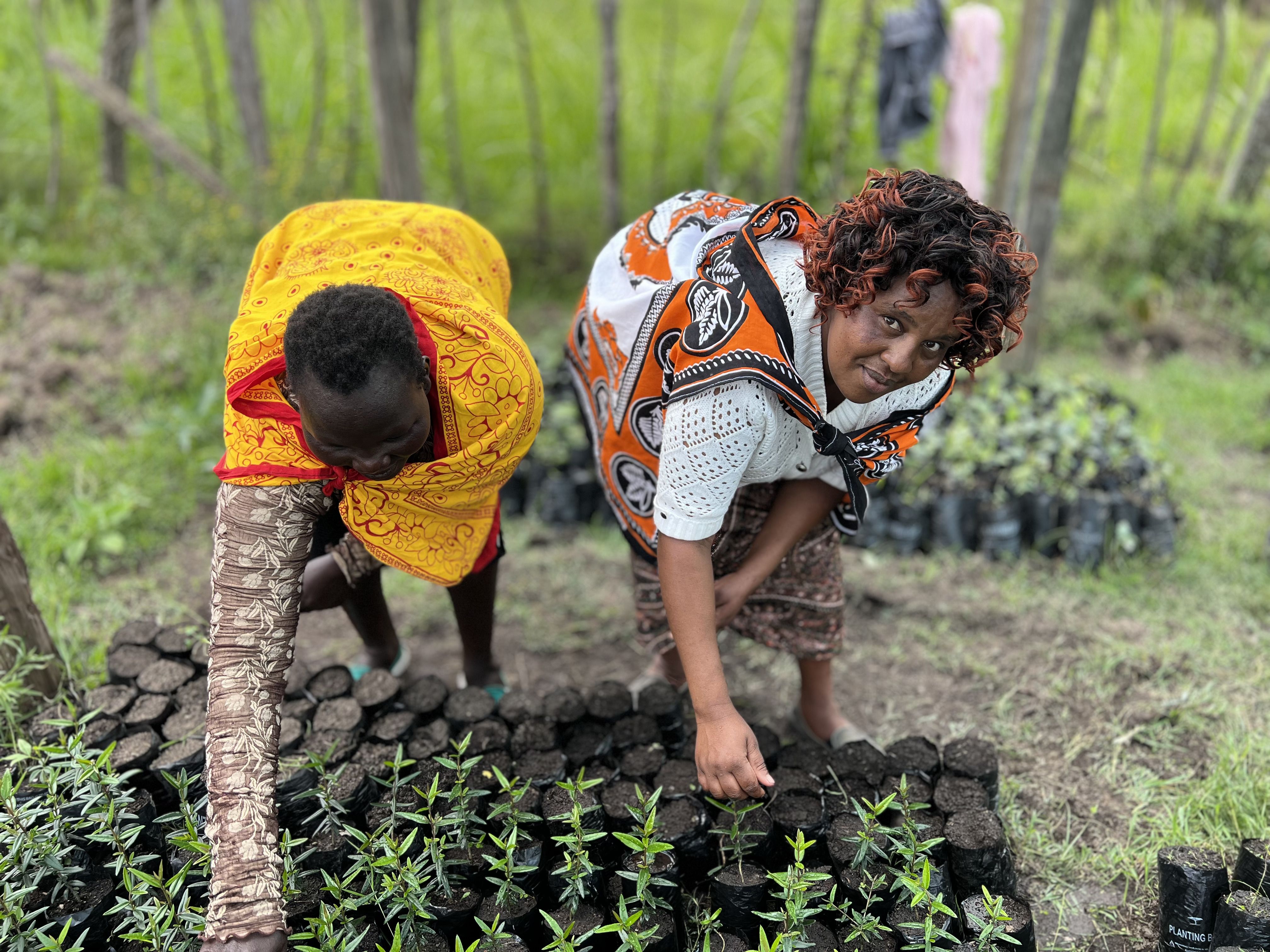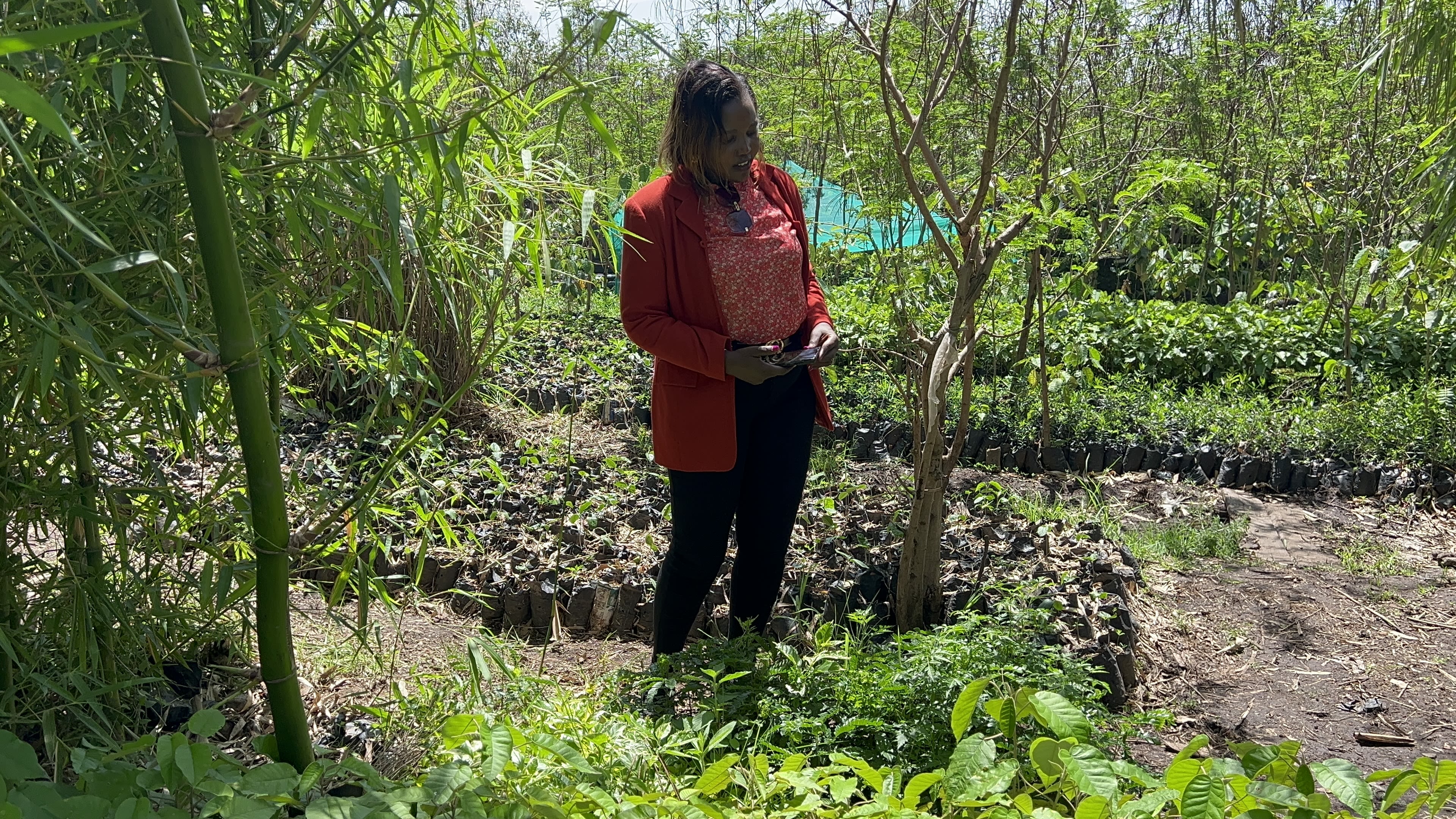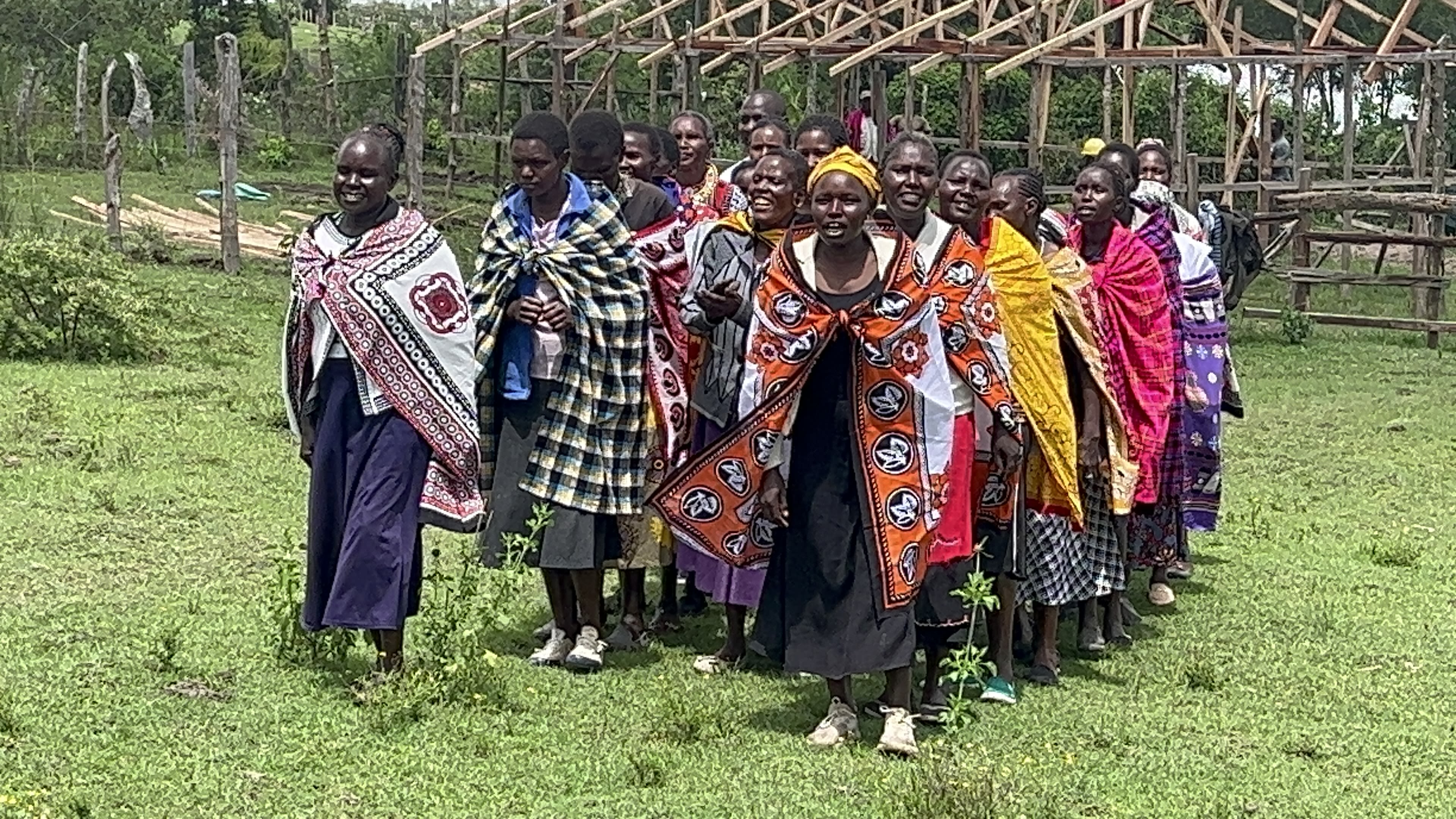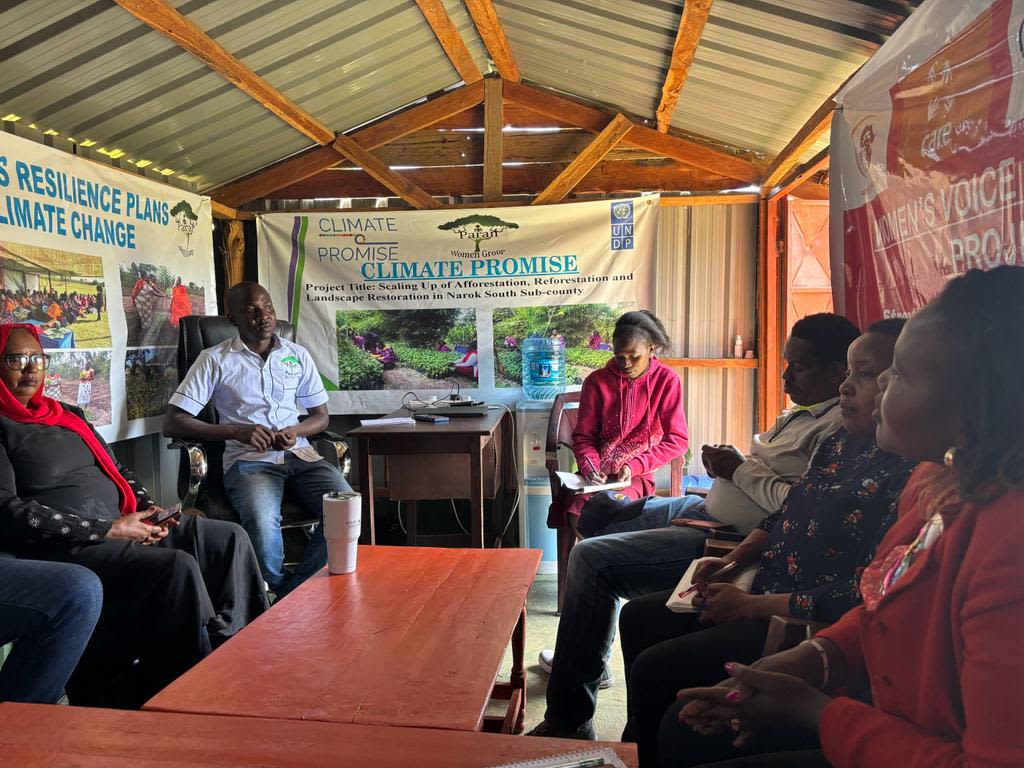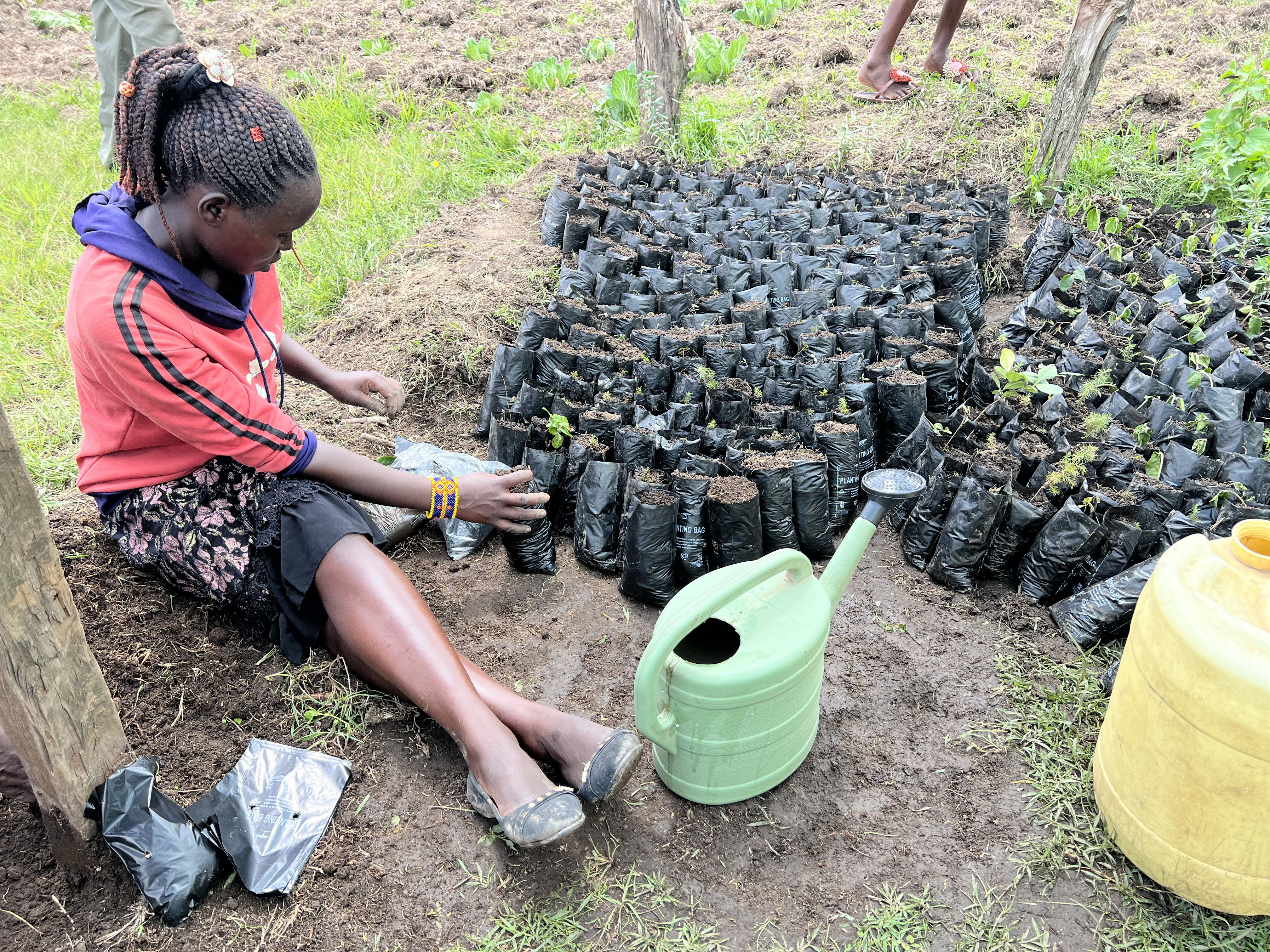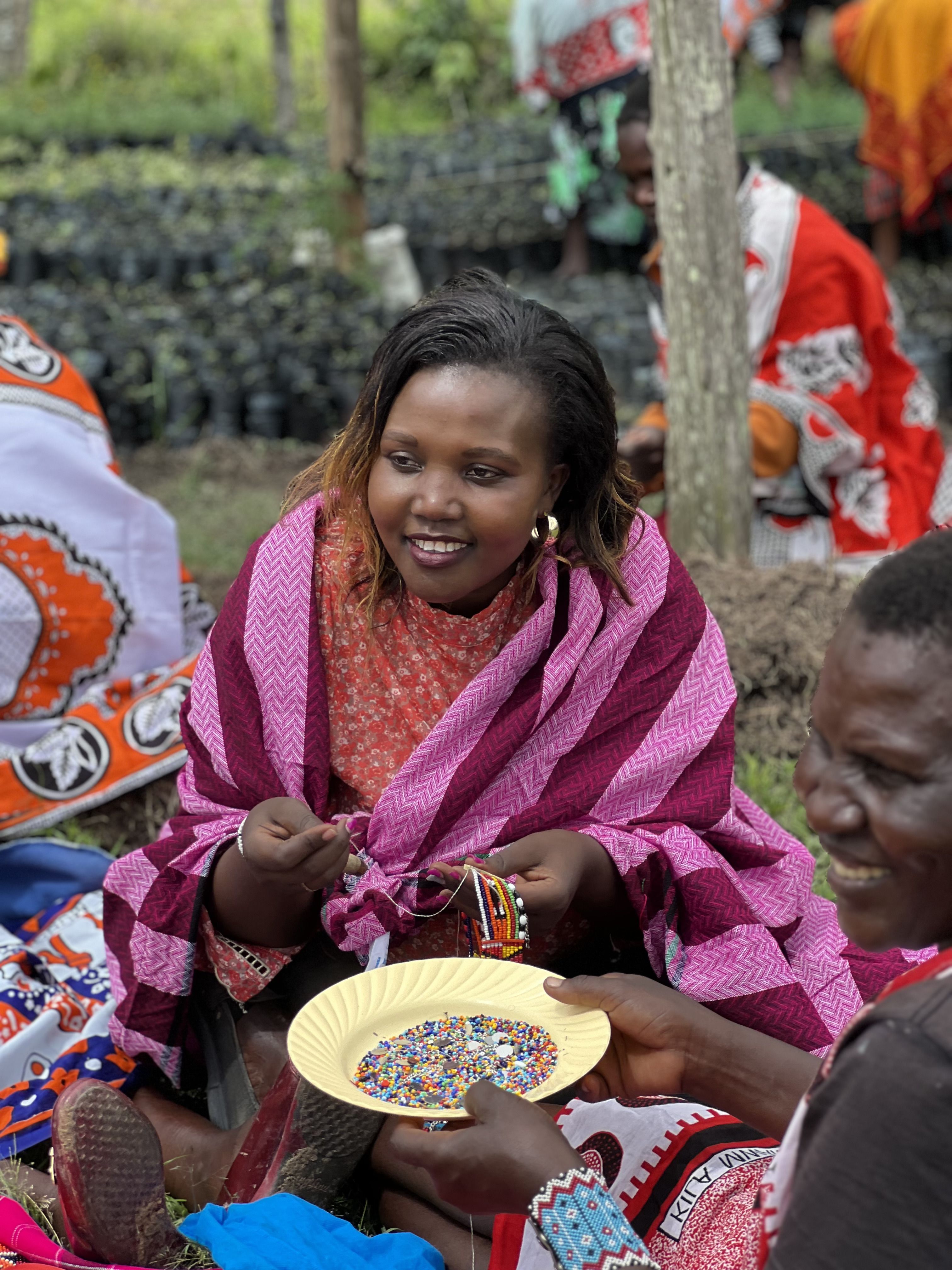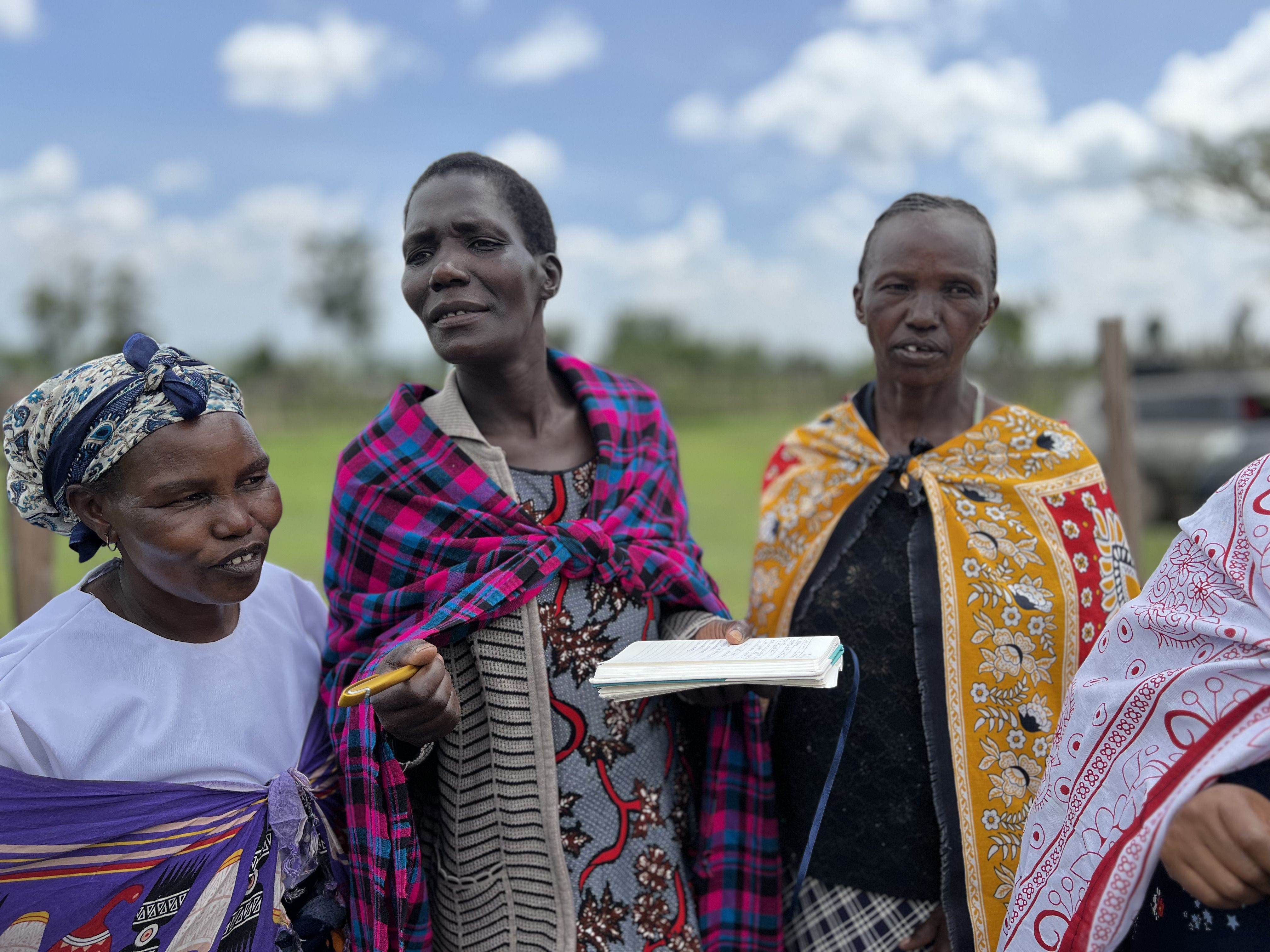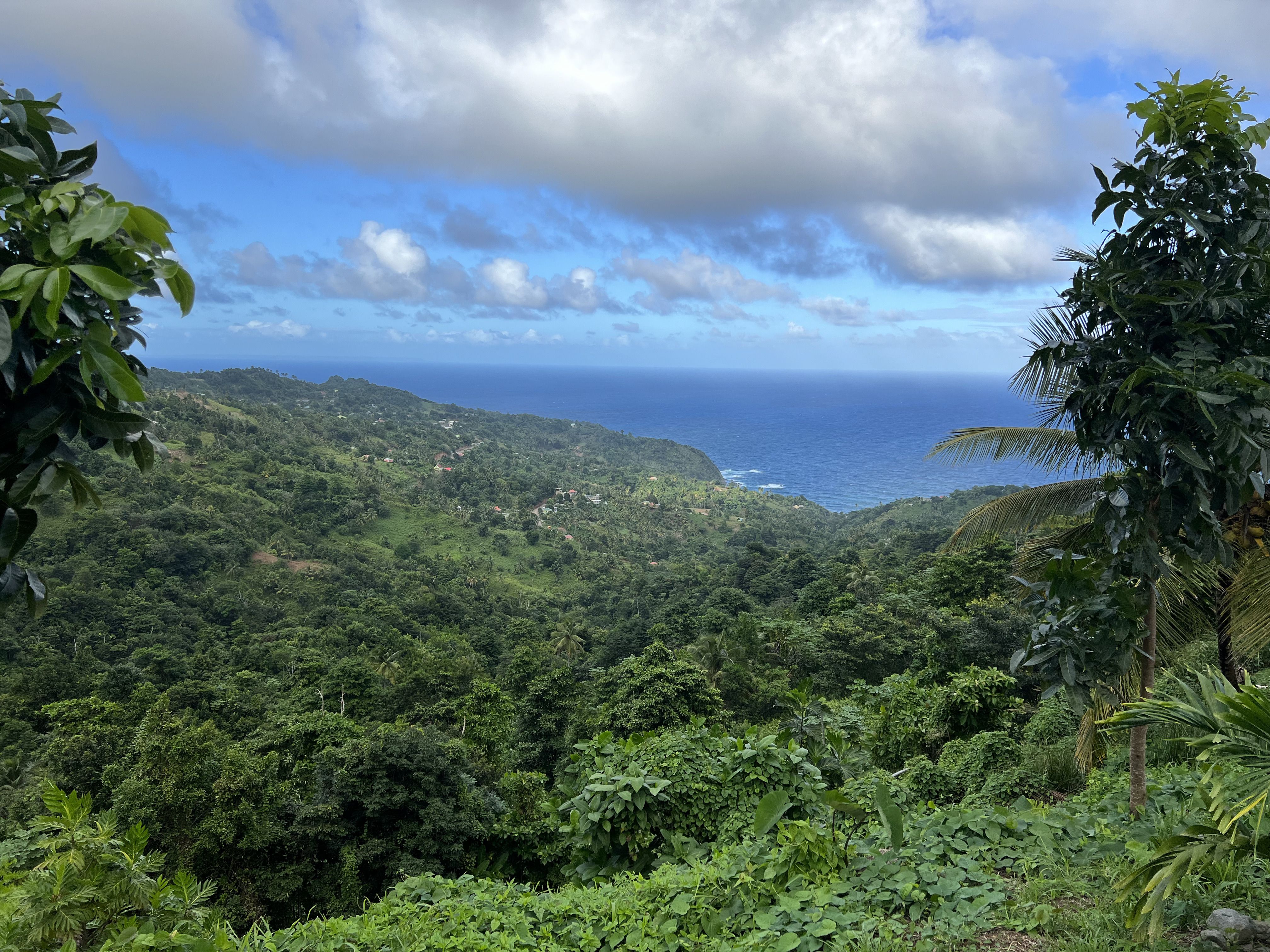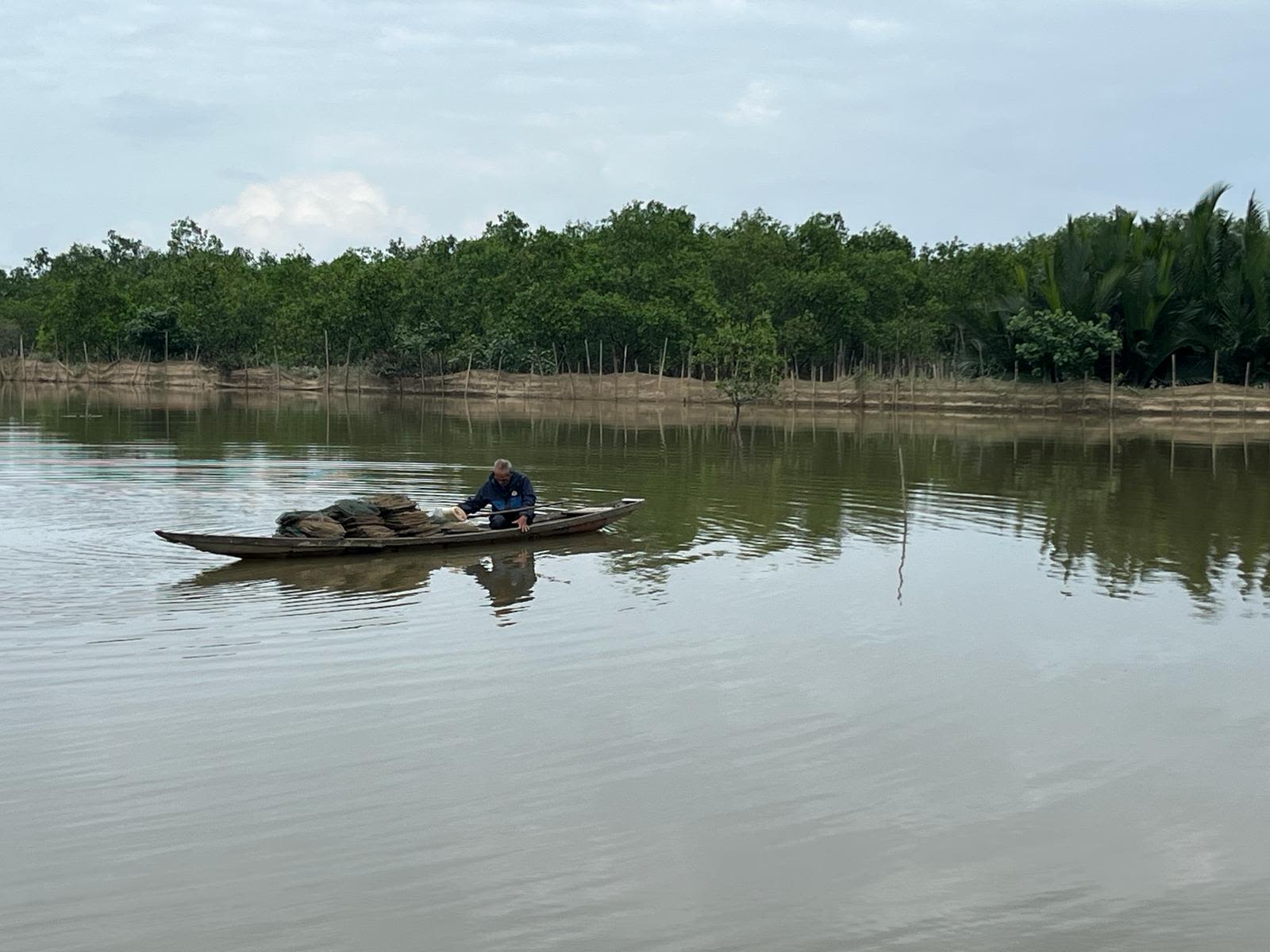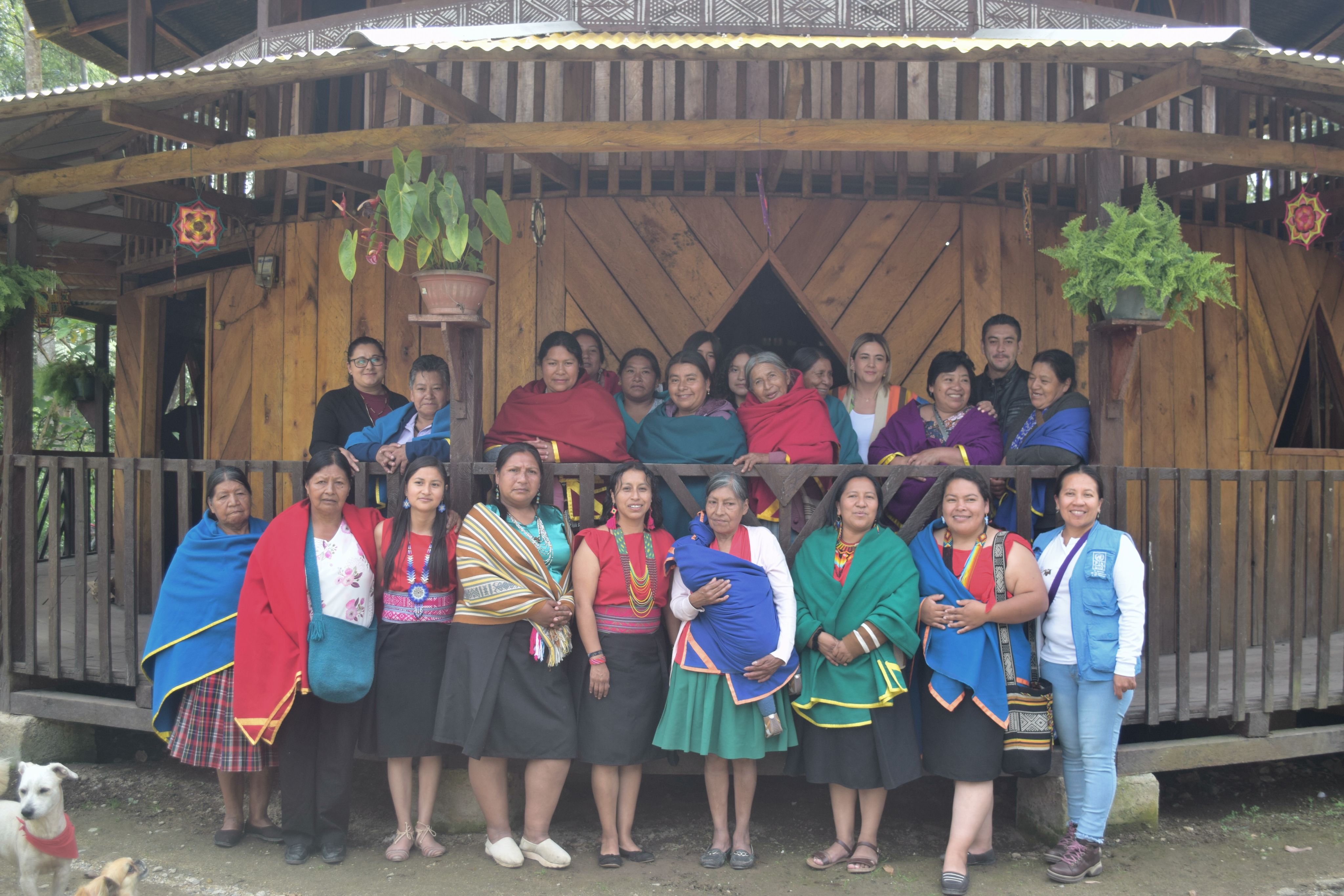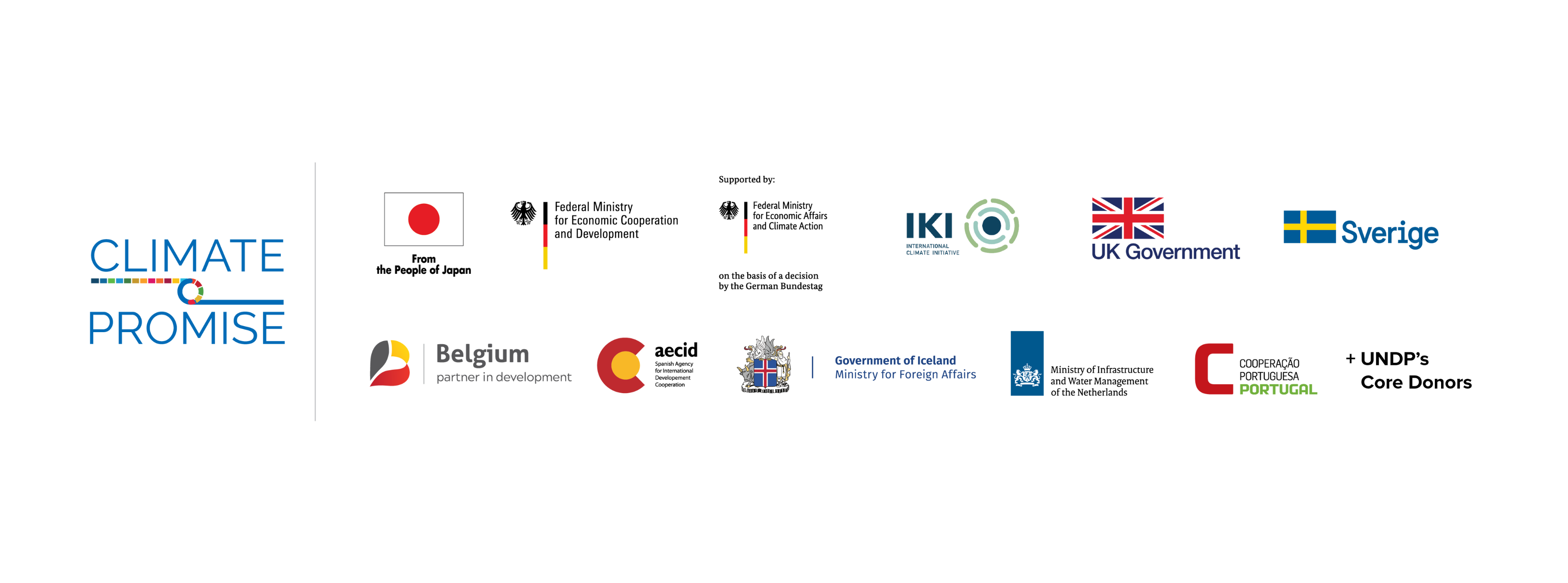Indigenous women championing climate and nature action in Kenya
Paran Women’s Group

Kenya has awarded two rounds of grants to Indigenous peoples and local communities. Ten Indigenous and local community organizations are now supported in Kenya through the Climate Promise Forest, Land and Nature area. The first cohort has shown encouraging results and these grants have provided valuable financing to scale up the impact of the work carried out by the grantees to support local livelihoods and protect nature. The second cohort commenced their activities in the beginning of 2024.
The call for applications in Kenya received a high number of proposals (more than 300), underscoring the interest and level of demand for these community-level grants. Five proposals were selected in the first round and a further five selected for the second round.
PHASE I GRANT PROGRESS:
PARAN women group
One grantee from the first cohort, Paran Women Group, is an Indigenous women’s collective that is finding long-term community solutions and achieving ripple-effect project results. Paran is located in Ololulunga - a village in Narok County that is inhabited by a population of approximately 60,000 residents.
The collective works to strengthen women's leadership and environmental governance through socio-economic empowerment initiatives, advocacy, capacity building, and training for Indigenous women and youth. Since its formation in 2005, Paran women have planted a total of 120,500 tree seedlings in the Narok South sub-county across various primary schools, farms, and along riverbanks.
With the new funding available through the Climate Promise, the project has delivered the following results:
- Strengthened capacities:
- 15 community groups were trained on creating and managing tree nurserie by members of Paran, the Kenya Forest Service (KFS), and a county government representative from the Ministry of Environment, Climate Change and Forestry (MECCF). They focused on where to select a site, establish and construct the nurseries, and how to manage and care for the seedlings, including how to address diseases and pests. With a focus on indigenous trees species, training on how to propagate these species has been carried out. Finally, participants learned about overall tree planting and care. The turnout was higher than expected, with 393 people in attendance – 161 attendees at or below the age of 35 and 232 attendees above 35.
- Three key dialogue meetings were conducted bringing together 15 villages to discuss tree planting and raise awareness of community objectives. Participants included the deputy county commissioner, area assist chiefs, village elders, KFS officers, Ministry of Environment representatives, and community members.
- Government collaboration: The Paran Group reported a strengthened relationship with local and national government entities. The cooperative met directly with the KFS, MCEEF, County Commissioner’s office and the Ministry of Agriculture to provide project updates to these entities. Paran’s relationships with government agencies have been symbiotic, with Paran helping raise awareness of the government’s efforts in the local region while simultaneously hosting government officials to join Paran’s community dialogues and training.
- Reforestation: To date, five tree nurseries have been established with the target of raising 45,000 seedlings. Seed species include Olea africana, Elaeodendron buchananii, Markhamia lutea, and Croton megalcarpus among others. In addition, farmers have also harvested and transplanted wildlings directly from the forest to supplement the seedlings being grown in the nurseries. So far, 7,550 seedlings from the wildlings have been transplanted into growing tubes.
- Social Inclusion & Women-led Enterprises: In addition to the impact the project has had on reforesting the area, it has also increased awareness in the communities about women’s rights and equal participation. Men from the communities were included in the trainings and meetings, including with the government, allowing them to witness their wives and sister’s efforts and impact as well as the recognition they received. This recognition adds value to the work of the women's cooperatives. Additionally, the project supported trainings on skills that could provide income sources for women and girls, particularly handmade beadwork and briquettes for cooking fuel. Not only do these skills open an avenue for women and girls to earn an income, but they also provide an alternative to staying at home and, in some cases, an escape for girls who may face pressure to end school early, early marriage, or FGM – which are potential risks for some girls in the region.
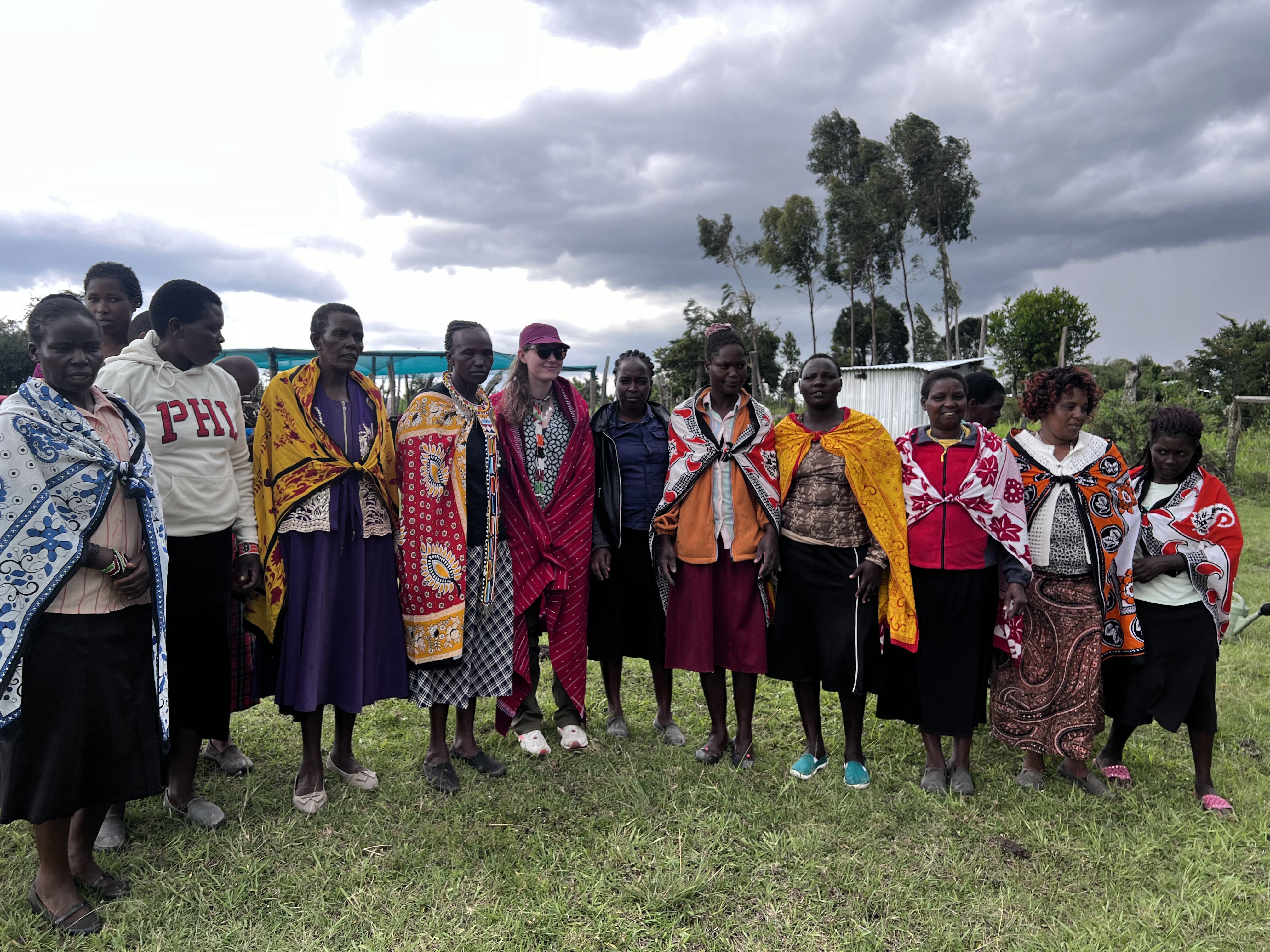
Overall, Paran has made significant progress in reforesting the area, raising awareness among the local communities about women’s rights, reforestation; and providing alternative income sources like beadwork and handmade natural briquettes for cooking. Given the tangible results, Paran is in a position to attract more financing to scale up activities related to NDC implementation.
Photos: Ecomedia Kenya
UN Disclaimer
The views expressed in this publication are those of the authors and do not necessarily represent
those of the United Nations, including the UN Development Programme, or UN Member States.
About UNDP’s Climate Promise
UNDP’s Climate Promise is the largest global offer on NDC support, covering over 120 countries and
territories, representing 80 percent of all developing countries globally – including 40 least developed
countries, 28 small island developing states, and 14 high emitters – to enhance their Nationally
Determined Contributions under the global Paris Agreement. Delivered in collaboration with a wide
variety of partners, it is the world’s largest offer of support for the enhancement of climate pledges.
Learn more at climatepromise.undp.org and follow at @UNDPClimate.
UNDP is the leading United Nations organization fighting to end the injustice of poverty, inequality, and
climate change. Working with our broad network of experts and partners in 170 countries, we help
nations to build integrated, lasting solutions for people and planet. Learn more at undp.org or follow at
@UNDP.


